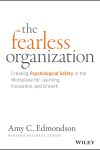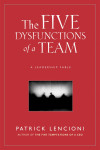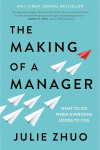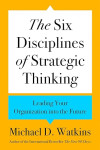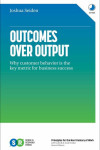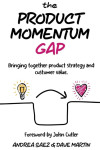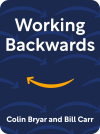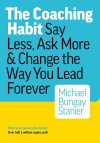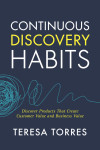Advice Trap
Be Humble, Stay Curious & Change the Way You Lead Forever
"The Advice Trap" by Michael Bungay Stanier is a transformative guide that challenges our natural inclination to constantly give advice. Stanier argues that this habit, driven by our inner "advice monster,"* often hinders rather than helps both in personal relationships and professional settings. The book provides practical strategies to tame this monster and instead cultivate a coaching mindset focused on curiosity and empowerment. Through a series of actionable techniques and thought-provoking insights, Stanier shows readers how to ask better questions, listen more effectively, and create an environment where others can develop their own solutions. This approach not only leads to better outcomes but also fosters innovation, autonomy, and stronger relationships. "The Advice Trap" is particularly valuable for leaders, managers, and anyone looking to improve their communication and problem-solving skills.
*) The advice monster is our inner compulsion to give unsolicited advice. It's problematic because it often leads to solving the wrong problems, disempowers others, and creates dependency. To shift from giving advice to asking questions, focus on curiosity, ask powerful questions, and create a psychologically safe environment where people feel comfortable sharing. Embrace the learning process and apply a coaching mindset in all interactions to foster growth and autonomy.
I consider this book a must read - especially if you are a manager
By reading "The Advice Trap," you will:
- Identify and tame your personal "advice monster," understanding its triggers and learning to resist the urge to immediately solve others' problems
- Master the art of asking powerful questions that drive meaningful conversations and enable others to find their own solutions
- Create psychological safety in conversations using the TeRa model, allowing for more authentic and productive discussions
- Develop practical techniques for staying curious longer and giving advice slower, leading to better outcomes and more empowered teams
Consider reading:
- "The Coaching Habit" by Michael Bungay Stanier: The essential predecessor to "The Advice Trap," introducing the seven essential questions that form the foundation for breaking free of the advice monster. Start here if you're new to coaching-based leadership.
- "Drive" by Daniel Pink: Explores how autonomy, mastery, and purpose drive motivation - crucial concepts for understanding why advice-giving can be demotivating and why enabling others to find their own solutions is more powerful.
- "Humble Inquiry" by Edgar H. Schein: Provides a deeper theoretical foundation for the art of asking instead of telling, complementing Stanier's practical approach with insights into building relationships through genuine curiosity.
- "Thinking, Fast and Slow" by Daniel Kahneman: Helps understand the cognitive biases that trigger our advice monster, offering insights into why we default to quick solutions instead of staying curious longer.
- "The Art of Learning" by Josh Waitzkin: Illuminates the learning process from the learner's perspective, helping coaches understand how to better facilitate others' growth and development through questions rather than direct instruction.
- "Multipliers" by Liz Wiseman: Explores how leaders can amplify their team's intelligence and capabilities - a perfect companion to the coaching mindset advocated in "The Advice Trap."
Recognize Your Advice Monster
We all have an inner “advice monster” that compels us to give unsolicited advice. It manifests in three personas:
Tell It: Believes you must always have the answer.
Save It: Feels responsible for solving everyone’s problems.
Control It: Wants to maintain control at all costs. Understanding which personas, you tend to embody is the first step in changing your behavior.
The Problem with Giving Advice
Often solves the wrong problem because we jump to conclusions without fully understanding the situation.
Disempowers and demotivates the receiver, implying they can’t solve their own issues.
Creates dependency on the advice-giver, overwhelming them with additional work.
Limits organizational change and innovation, as people don’t feel encouraged to think independently.
Stay Curious Longer
Instead of jumping to solutions, practice extending your curiosity.
Stay curious longer and give advice slower to ensure a deeper understanding of the situation.
Focus on asking questions rather than providing solutions. This shift helps others find their own answers and fosters autonomy.
Master the Art of Questioning
Develop your ability to ask powerful, open-ended questions, which are crucial for effective coaching and leadership.
Use the seven essential questions, including “What’s on your mind?”, “What’s the real challenge here for you?”, and “What do you want?”
Some strategies for asking better questions:
Ask one question at a time.
Start questions with “what” to keep them open-ended.
Get comfortable with silence to give others space to think.
Actively listen and acknowledge the answers you receive.
Avoid rhetorical questions and long introductions before asking the actual question.
Create Psychological Safety
Psychological safety allows people to feel comfortable sharing their true thoughts and challenges.
Use the TeRa model (Tribe, Expectation, Rank, Autonomy) to create an environment where people feel safe to engage in meaningful, vulnerable conversations.
When people feel safe, they’re more likely to engage in transformative discussions that lead to effective solutions.
Embrace the Learning Process
Understand that taming your advice monster is an ongoing journey.
Be patient with yourself and celebrate small victories along the way.
Remember, every interaction is an opportunity for coaching. This mindset can be applied to all interactions—not just formal coaching sessions. Remain curious, ask open-ended questions, and resist the urge to immediately offer solutions.
Coaching Mindset
Stay Curious Longer: Give advice slower to allow others to identify the real challenge and come up with their own solutions.
Ask Better Questions: Cultivate curiosity by asking open-ended questions that encourage deeper thinking and problem-solving.
Apply Beyond Coaching Sessions: Use this coaching mindset in everyday conversations, emails, and texts to foster better communication and problem-solving.
Q: Why is giving advice problematic when it seems helpful?
A: While advice-giving can provide quick solutions, it creates dependency, reduces innovation, and prevents people from developing their own problem-solving capabilities.
Q: How do I know when it’s appropriate to give advice?
A: Use the “TERA” model to assess safety, then ask if advice is explicitly requested. Even then, first ask questions to ensure you understand the real challenge
.
Q: What if someone directly asks for advice?
A: Acknowledge the request but first ask questions to understand the real challenge. When giving advice, frame it as one possible option and check if it’s helpful.
Q: How do I handle urgent situations where quick decisions are needed?
A: Even in urgent situations, quick clarifying questions can help ensure you’re solving the right problem. Make your advice explicit and check for understanding.
Q: How do I break the habit of giving immediate advice?
A: Start by identifying your advice monster’s triggers, practice the seven essential questions, and celebrate small wins in staying curious longer.
- When you find yourself exhausted from constantly solving everyone else’s problems: The book provides a liberating framework for breaking free from the “advice monster” while actually helping your team grow stronger.
- When your well-intentioned advice isn’t producing the results you hoped for: Perfect for leaders who notice their teams becoming increasingly dependent on their solutions rather than developing their own problem-solving capabilities.
- When transitioning from star individual contributor to people leader: Helps you navigate the challenging shift from being valued for your solutions to being valuable for how you develop others.
- When you want to scale your impact without burning out: Especially relevant for technical leaders and managers who need to shift from being the answer person to being the question person, enabling their teams to handle increasingly complex challenges.
- When building a learning organization: Essential reading for leaders who want to create a culture where people grow through curiosity rather than dependency.
Michael Bungay Stanier's official website (workshops and additional materials)
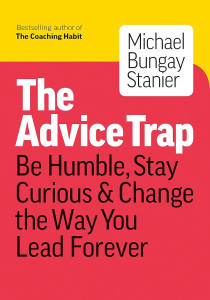
Your support helps me maintain and improve the book recommendations for everyone.
